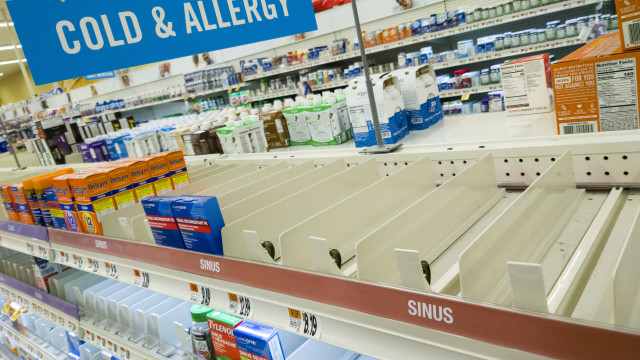There are more drug shortages in the United States than ever before, CNN reported.
This is according to data from the American Society of Systemic Pharmacists and the Drug Information Service at the University of Utah.
The organizations first began tracking drug shortages in 2001. Before that, the problem peaked in 2014, when there were active shortages of 320 drugs. In the following decade, levels fluctuated, but since 2021 there has been a steady upward trend - now, in the first three months of 2024, the number has reached a record 323 drugs.
"It's long past time to end the shortage," Paul Abramowitz, CEO of the American Society of Systemic Healthcare Pharmacists, wrote in a blog post.
"All classes of drugs are vulnerable to shortages," he says. Some of the most troubling shortages are related to generic sterile injectable drugs, including cancer chemotherapy drugs and emergency drugs, stored in hospital carts and procedure rooms. The ongoing national shortage of drugs to treat attention-deficit/hyperactivity disorder also remains a serious challenge for physicians and patients.
Along with the 32 chemotherapy drugs that are frequently in short supply, the five drug categories with the greatest shortages include central nervous system stimulants, antimicrobials, hormonal agents and intravenous fluids.
The drug shortage database is based on voluntary reports from medical practitioners, patients and others, which are confirmed by manufacturers. This list often includes more drugs than the number considered to be in short supply by the US Food and Drug Administration because it reflects a broader impact on providers and patients.
According to government data, the average drug shortage lasts about a year and a half. According to an analysis by the consulting firm IQVIA, more than half of the cases last more than two years. And the average shortage affects at least half a million patients, many of whom are elderly.
At the core are production and quality issues such as supply chain gaps and production shutdowns.
The US Department of Health published a white paper outlining policy proposals to reduce vulnerability. Among the key recommendations are cooperation with manufacturers and hospitals, which aims to ensure transparency in the drug market and stimulate investment in sustainable and diverse supply chains.
But the American Society of Systemic Healthcare Pharmacists has "serious concerns" about some parts of that proposal, particularly the financial penalties for hospitals that don't have the resources to deal with the problem.
"We all know that governance is not enough and is not a sustainable solution to the deepening crisis. Much work remains to be done at the federal level to address the root causes," Abramowitz emphasizes. /BGNES





.jpeg)

